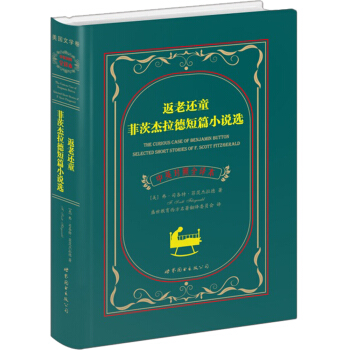

具体描述
编辑推荐
适读人群 :有一定英语基础,对英语名著类读物感兴趣的读者 阅读文学名著学语言,是掌握英语的方法。既可接触原汁原味的英语,又能享受文学之美,一举两得,何乐不为?
这套精选的中英对照名著全译丛书,未改编改写、未删节削减,且配有注释、部分书中还添加了精美插图。
要学语言、读好书,当读名著原文。如习武者切磋交流,同高手过招方能渐明其间奥妙,若一味在低端徘徊,终难登堂入室。积年流传的名著,就是书中“高手”。
本套丛书的英文版本,是根据外文原版书精心挑选而来;对应的中文译文以直译为主,以方便中英文对照学习,译文经反复推敲,对忠实理解原著极有助益;在涉及到重要文化习俗之处,添加了精当的注释,以解疑惑。
读过本套丛书的原文全译,相信你会得书之真意、语言之精髓。
内容简介
弗·司各特·菲茨杰拉德(1896-1940),20世纪美国最杰出的作家之一。菲茨杰拉德的魅力来自于他清晰的叙述、优雅的文风以及多姿多彩、点铁成金的遣词造句,这种风格在他的小说中得到了最好的体现。《返老还童 菲茨杰拉德短篇小说选(中英对照全译本)》收录了包括《返老还童》、《一颗像里茨饭店那么大的钻石》在内的多篇著名短篇小说,这些作品基本体现了作者的创作特色,读者不但可以欣赏脍炙人口的故事,也可以领略到一代文学天才闪烁的灵感和高超的技艺。《返老还童》原先并不起眼,但在2008年被著名鬼才导演大卫?芬奇耗巨资改成电影《返老还童》之后,名声大噪。故事讲述了了本杰明?巴顿一出生就是个八十岁老头,以后每隔一年就小一岁。因此,他拥有与别人完全不同的人生和悲欢离合……这个故事跨越了从一战到21世纪的百年时光,给读者带来关于生命和死亡的思考。
作者简介
弗·司各特·菲茨杰拉德(1896-1940),20世纪美国最杰出的作家之一。菲茨杰拉德的魅力来自于他清晰的叙述、优雅的文风以及多姿多彩、点铁成金的遣词造句,这种风格在他的小说中得到了最好的体现。目录
返老还童CHAPTER 1 第一章
CHAPTER 2 第二章
Chapter 3 第三章
CHAPTER 4 第四章
CHAPTER 5 第五章
CHAPTER 6 第六章
CHAPTER 7 第七章
CHAPTER 8 第八章
CHAPTER 9 第九章
CHAPTER 10 第十章
CHAPTER 11 第十一章
THE DIAMOND AS BIG AS THE RITZ
一颗像里茨饭店那么大的钻石
CHAPTER 1 第一章
CHAPTER 2 第二章
CHAPTER 3 第三章
CHAPTER 4 第四章
CHAPTER 5 第五章
CHAPTER 6 第六章
CHAPTER 7 第七章
CHAPTER 8 第八章
CHAPTER 9 第九章
CHAPTER 10 第十章
CHAPTER 11 第十一章
HEAD AND SHOULDERS
脑袋和肩膀
CHAPTER 1 第一章
CHAPTER 2 第二章
CHAPTER 3 第三章
CHAPTER 4 第四章
CHAPTER 5 第五章
CRAZY SUNDAY
疯狂星期日
CHAPTER 1 第一章
CHAPTER 2 第二章
CHAPTER 3 第三章
CHAPTER 4 第四章
CHAPTER 5 第五章
THE RICH BOY
富家子弟
CHAPTER 1 第一章
CHAPTER 2 第二章
CHAPTER 3 第三章
CHAPTER 4 第四章
CHAPTER 5 第五章
CHAPTER 6 第六章
CHAPTER 7 第七章
CHAPTER 8 第八章
THE LEES OF HAPPINESS
幸福的庇护所
CHAPTER 1 第一章
CHAPTER 2 第二章
CHAPTER 3 第三章
CHAPTER 4 第四章
CHAPTER 5 第五章
CHAPTER 6 第六章
THE FOUR FISTS
四只拳头
CHAPTER 1 第一章
CHAPTER 2 第二章
CHAPTER 3 第三章
CHAPTER 4 第四章
精彩书摘
THE CURIOUS CASE OF BENJAMIN BUTTON返老还童
CHAPTER 1
第一章
As long ago as 1860 it was the proper thing to be born at home. At present, so I am told, the high gods of medicine have decreed that the first cries of the young shall be uttered upon the anesthetic air of a hospital, preferably a fashionable one. So young Mr. and Mrs. Roger Button were fifty years ahead of style when they decided, one day in the summer of 1860, that their first baby should be born in a hospital. Whether this anachronism had any bearing upon the astonishing history I am about to set down will never be known.
I shall tell you what occurred, and let you judge for yourself.
The Roger Buttons held an enviable position, both social and financial, in ante-bellum Baltimore. They were related to the This Family and the That Family, which, as every Southerner knew, entitled them to membership in that enormous peerage which largely populated the Confederacy. This was their first experience with the charming old custom of having babies - Mr. Button was naturally nervous. He hoped it would be a boy so that he could be sent to Yale College in Connecticut, at which institution Mr. Button himself had been known for four years by the somewhat obvious nickname of "Cuff".
On the September morning consecrated to the enormous event he arose nervously at six o'clock, dressed himself, adjusted an impeccable stock, and hurried forth through the streets of Baltimore to the hospital, to determine whether the darkness of the night had borne in new life upon its bosom.
When he was approximately a hundred yards from the Maryland Private Hospital for Ladies and Gentlemen he saw Doctor Keene, the family physician, descending the front steps, rubbing his hands together with a washing movement - as all doctors are required to do by the unwritten ethics of their profession.
Mr. Roger Button, the president of Roger Button & Co., Wholesale Hardware, began to run toward Doctor Keene with much less dignity than was expected from a Southern gentleman of that picturesque period. "Doctor Keene!" he called. "Oh, Doctor Keene!"
The doctor heard him, faced around, and stood waiting, a curious expression settling on his harsh, medicinal face as Mr. Button drew near.
"What happened?" demanded Mr. Button, as he came up in a gasping rush. "What was it? How is she? A boy? Who is it? What - "
"Talk sense!" said Doctor Keene sharply. He appeared somewhat irritated.
"Is the child born?" begged Mr. Button.
Doctor Keene frowned. "Why, yes, I suppose so - after a fashion." Again he threw a curious glance at Mr. Button.
"Is my wife all right?"
"Yes."
"Is it a boy or a girl?"
"Here now!" cried Doctor Keene in a perfect passion of irritation, "I'll ask you to go and see for yourself. Outrageous!" He snapped the last word out in almost one syllable, then he turned away muttering: "Do you imagine a case like this will help my professional reputation? One more would ruin me - ruin anybody."
"What's the matter?" demanded Mr. Button, appalled. "Triplets?"
"No, not triplets!" answered the doctor cuttingly. "What's more, you can go and see for yourself. And get another doctor. I brought you into the world, young man, and I've been physician to your family for forty years, but I'm through with you! I don't want to see you or any of your relatives ever again! Goodbye!"
Then he turned sharply, and without another word climbed into his phaeton, which was waiting at the curbstone, and drove severely away.
Mr. Button stood there upon the sidewalk, stupefied and trembling from head to foot. What horrible mishap had occurred? He had suddenly lost all desire to go into the Maryland Private Hospital for Ladies and Gentlemen - it was with the greatest difficulty that, a moment later, he forced himself to mount the steps and enter the front door.
A nurse was sitting behind a desk in the opaque gloom of the hall. Swallowing his shame, Mr. Button approached her.
"Good-morning," she remarked, looking up at him pleasantly.
"Good-morning. I - I am Mr. Button."
At this a look of utter ter
……
前言/序言
用户评价
我留意到这本书的排版布局非常人性化,无论是行距、字间距,还是页边距的留白,都拿捏得恰到好处,形成了非常舒适的阅读视觉感受。这种对阅读舒适度的极致追求,体现了出版方对读者的尊重。很多时候,糟糕的排版会极大地分散阅读的注意力,让人难以沉浸于文字构建的世界。而这本书的版式设计,仿佛是在说:“请放松,安心地享受接下来的故事。” 这种细致入微的考量,使得即使面对篇幅较长的段落,眼睛也不会感到压力。这种对阅读体验的深层关怀,远胜过那些只注重内容的新潮作品,它保证了读者可以心无旁骛地进入文本的深层肌理,去体会作者的笔触与情绪的起伏。
评分拿到这本书后,我做的第一件事就是快速浏览了一下目录和译者介绍。我向来对那些将文学作品奉为珍宝,并愿意花费大量心血去打磨翻译的译者抱有极高的敬意。从简介中透露出的那种对文本精髓的深刻理解和对语言艺术的敏锐捕捉,让我对后续的阅读充满了期待。好的译本,绝不仅仅是文字的简单搬运,它更像是搭建了一座沟通不同文化和时代的桥梁,要做到信、达、雅的完美统一,实属不易。我特别留意了译者是如何处理那些充满时代烙印的俚语和特定的社会背景描述的,这些细节往往是检验译者功力的试金石。如果译者能够用当代读者既能理解又不失原文韵味的方式来呈现,那无疑是一次成功的跨越,这远比单纯的字面对应要复杂得多,需要的是一种近乎于再创作的智慧和勇气。
评分从这本书的整体感觉来看,它似乎在向我们传达一种对文学经典的敬畏之心。那种厚重感和历史的沉淀感,让人联想到那些经过时间淘洗依然熠熠生辉的作品。它不追求哗众取宠的标题党式宣传,而是依靠自身内容的扎实和形式上的精致来赢得读者的青睐。这种内敛而自信的姿态,本身就是对文学价值的一种有力宣言。对于一个真正的阅读爱好者来说,一本好书的价值不仅在于它告诉了我们什么,更在于它以何种方式告诉了我们。这本书所展现出的这种对传统出版美学的坚持,无疑让它在众多同类书中脱颖而出,成为了一个值得被珍藏的文化载体。
评分这本书的装帧设计简直是艺术品级别的,它不仅仅是一本书,更像是一件可以摆放在书架上炫耀的藏品。我个人偏爱那种能经得起时间考验的设计风格,而不是追逐一时的潮流。这本书的封面色彩搭配和字体排布,透露出一种沉稳又不失灵动的气质,让人每次拿起它,都能感受到一种被温柔对待的仪式感。书脊的设计也相当考究,即便是侧放,其线条和比例也显得和谐悦目。在如今电子阅读盛行的时代,实体书的价值就更应该体现在这种物理层面的美感和质感上。这种精心雕琢的感觉,让阅读本身从一种获取信息的行为,升华为一种对美的欣赏和对生活品质的追求,确实让人心生赞叹。
评分这本书的封面设计真是让人眼前一亮,那种复古的油画质感,配上典雅的字体,一下子就把人带回了那个遥远的年代。我立刻就被那种浓郁的怀旧气息所吸引,仿佛能闻到纸张上散发出的淡淡墨香。装帧的质量也很扎实,拿在手里沉甸甸的,让人感觉物有所值。这种注重细节的制作态度,在如今这个快餐文化盛行的时代里,简直是一股清流。我常常在想,一本好书不仅仅是内容上的馈赠,更是一种全方位的阅读体验,从指尖触碰到书页的触感,到眼睛捕捉到的排版美学,每一个环节都在无声地诉说着创作者的匠心。特别值得一提的是,内页的纸张选择,既能很好地保护眼睛,又保证了印刷的清晰度,即便是长时间阅读也不会感到疲劳。这种对阅读本体的尊重,是许多现代出版物所缺失的,读起来让人感到非常舒心和愉悦。
评分质量跟书店买的一样,发货也很快!
评分野性的呼唤,杰克伦敦成名作,简单易懂有感触
评分很好的美国作家的作品,不错的。
评分《人猿泰山》讲述的是英国勋爵克莱顿带着身怀六甲的夫人乘船去非洲赴任。因为海难事故,克莱顿夫妇流落荒岛,不久孩子出生了,而克莱顿夫妇却不幸身亡。留下的婴儿被母猿卡拉收养。泰山在卡拉的爱护中成长,不仅学会了在丛林中生存的全部本领,还具有人类特有的聪明、智慧。凭着这点与众不同,泰山懂得利用工具猎取食物,并从生父遗留下来的看图识字课本上认识了不少字。有一天,美国科学探险家的女儿珍妮·波特流落到这片海滩上,使泰山的生活发生了急剧的变化,生出无数的波折……本书为中英对照,领略小说魅力的同时提升英语阅读水平。
评分书还好,两天到,原以为看完电影,小说的内容会更丰富,结果才这么少十几分钟看完了,而且跟电影的剧情根本不一样,,,只能说佩服改编的了
评分图书不错,我是三折入手,自从在京东买书以来,一直很划算,支持京东,但是今年双11优惠券不好抢,娃娃机就更不用想了。
评分看中京东的信誉与速度!是支持京东强大的理由!
评分印刷很清楚,买的是京东自营的书,孩子假期可以读读做做,挺好的,早上订货,下午就到了,不错啊!
评分好好好,不错,喜欢这种版本的有中英文,非常好,方便阅读,希望有机会下次再来买!
相关图书
本站所有内容均为互联网搜索引擎提供的公开搜索信息,本站不存储任何数据与内容,任何内容与数据均与本站无关,如有需要请联系相关搜索引擎包括但不限于百度,google,bing,sogou 等
© 2026 book.coffeedeals.club All Rights Reserved. 静流书站 版权所有


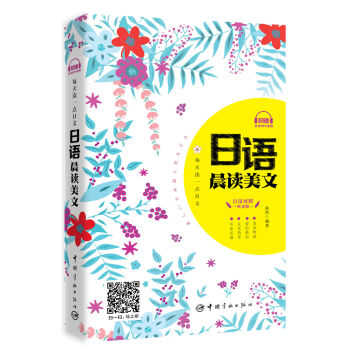
![泰戈尔诗选:飞鸟集+新月集(英文插图版) [selected poems of Tagore] pdf epub mobi 电子书 下载](https://pic.windowsfront.com/12153932/58d2359cN9fd3d840.jpg)

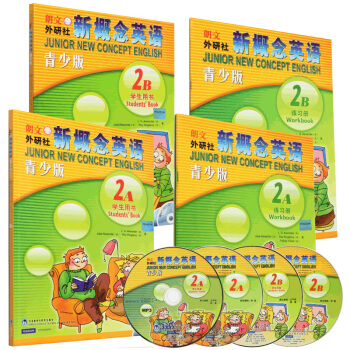



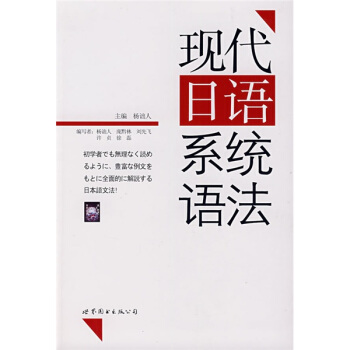
![麦格劳·希尔:英汉双解科技大词典 [McGraw-Hill Dictionary of Scientific and Technical Terms] pdf epub mobi 电子书 下载](https://pic.windowsfront.com/10619950/rBEDik_877YIAAAAAAFQe4ay96IAAD28wJiJY0AAVCT552.jpg)
![企鹅口袋书系列·伟大的思想:基督徒与罗马之陷落(第3辑)(英汉双语) [The Christians and the Fall of Rome] pdf epub mobi 电子书 下载](https://pic.windowsfront.com/10993758/rBEIDE_FtXgIAAAAAAB_qUCeg40AAAQNAFpVpkAAH_B069.jpg)
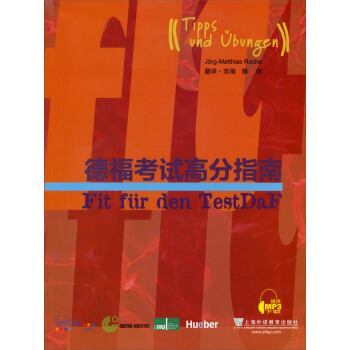


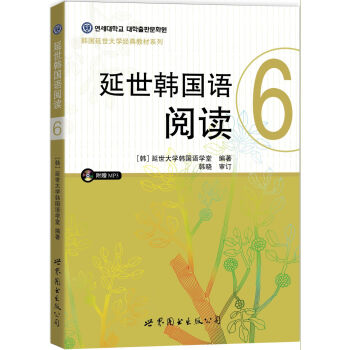


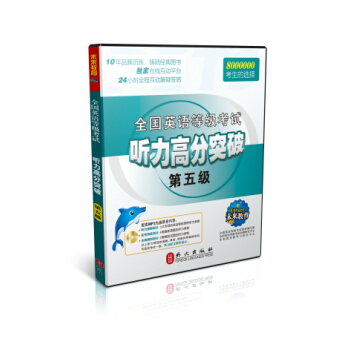

![中译经典文库·世界文学名著:爱玛(英语原著版) [EMMA] pdf epub mobi 电子书 下载](https://pic.windowsfront.com/10161517/e45c3b43-3b50-4349-9942-4f89d31079a4.jpg)